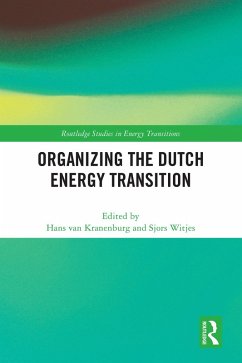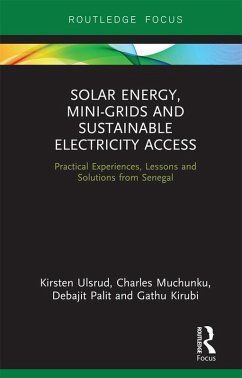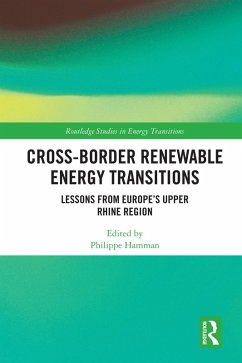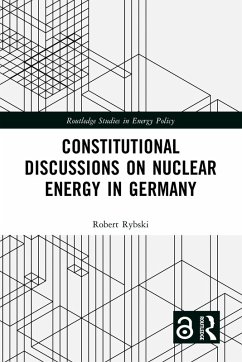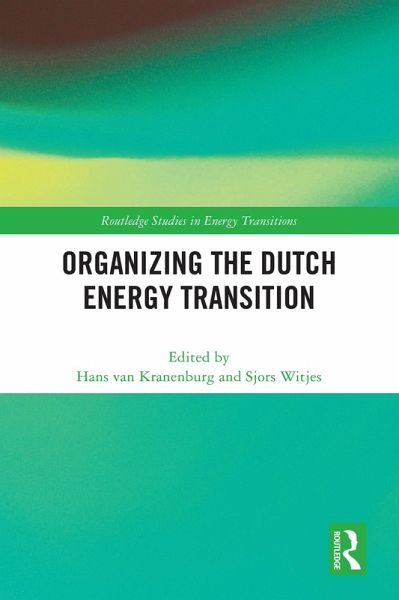
Organizing the Dutch Energy Transition (eBook, PDF)
Versandkostenfrei!
Sofort per Download lieferbar
42,95 €
inkl. MwSt.
Weitere Ausgaben:

PAYBACK Punkte
21 °P sammeln!
This book addresses learnings from the energy transition in the Netherlands.This book brings together contributions from experts in academia and practice to the Dutch energy transition by sharing their knowledge and experience gained over many years and from different roles and responsibilities. The chapters are clustered around four key perspectives - Policy, Sector, Organization, and Future - and explore the impact of policy decisions of governments and strategic decisions of firms operating in the energy sector on the energy transition process. The different perspectives present many promis...
This book addresses learnings from the energy transition in the Netherlands.
This book brings together contributions from experts in academia and practice to the Dutch energy transition by sharing their knowledge and experience gained over many years and from different roles and responsibilities. The chapters are clustered around four key perspectives - Policy, Sector, Organization, and Future - and explore the impact of policy decisions of governments and strategic decisions of firms operating in the energy sector on the energy transition process. The different perspectives present many promising strategies, policies, and innovations on each aspect, resulting in a deeper understanding of how each of these strategies, policies, and innovations may hinder or contribute to foster the energy transition. It concludes with a reflection on lessons learned and specific managerial and policy recommendations.
This volume will be of great interest to students, scholars, and industry professionals researching and working in the areas of energy transitions, sustainable business, energy technology, and energy policy.
This book brings together contributions from experts in academia and practice to the Dutch energy transition by sharing their knowledge and experience gained over many years and from different roles and responsibilities. The chapters are clustered around four key perspectives - Policy, Sector, Organization, and Future - and explore the impact of policy decisions of governments and strategic decisions of firms operating in the energy sector on the energy transition process. The different perspectives present many promising strategies, policies, and innovations on each aspect, resulting in a deeper understanding of how each of these strategies, policies, and innovations may hinder or contribute to foster the energy transition. It concludes with a reflection on lessons learned and specific managerial and policy recommendations.
This volume will be of great interest to students, scholars, and industry professionals researching and working in the areas of energy transitions, sustainable business, energy technology, and energy policy.
Dieser Download kann aus rechtlichen Gründen nur mit Rechnungsadresse in A, B, BG, CY, CZ, D, DK, EW, E, FIN, F, GR, HR, H, IRL, I, LT, L, LR, M, NL, PL, P, R, S, SLO, SK ausgeliefert werden.




